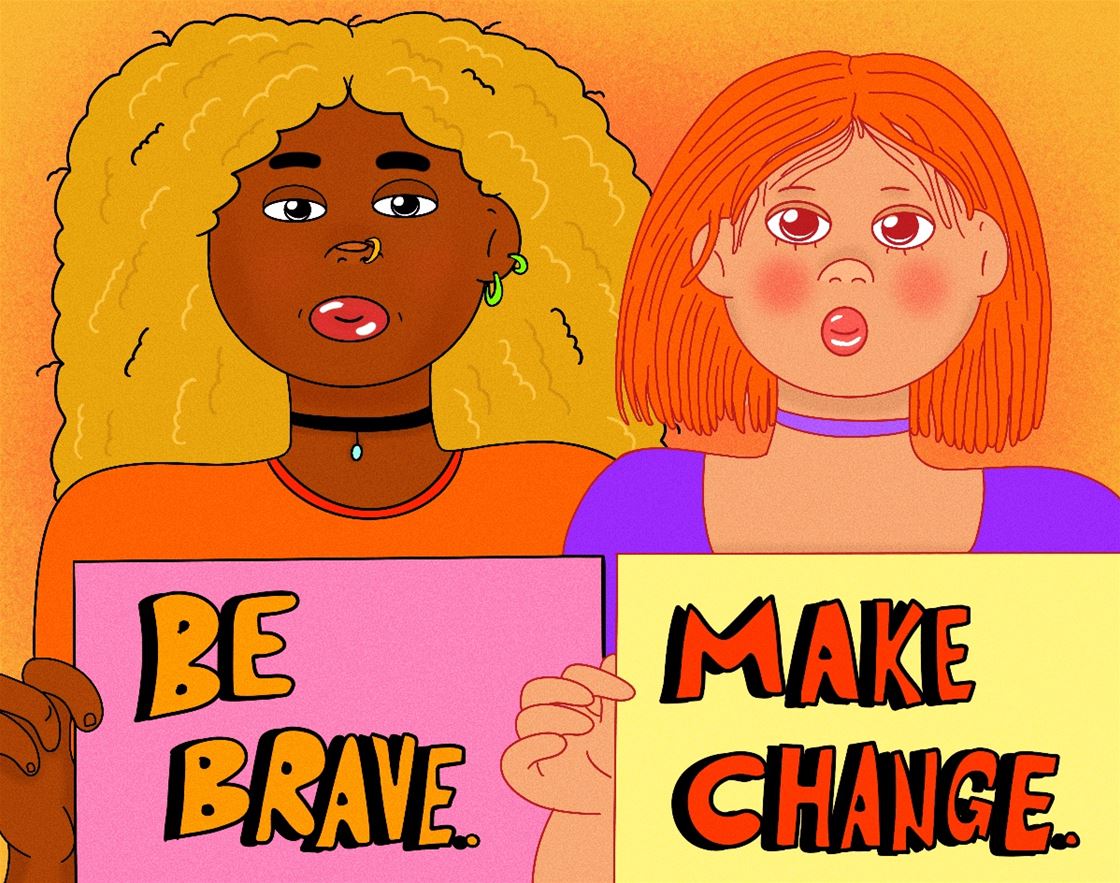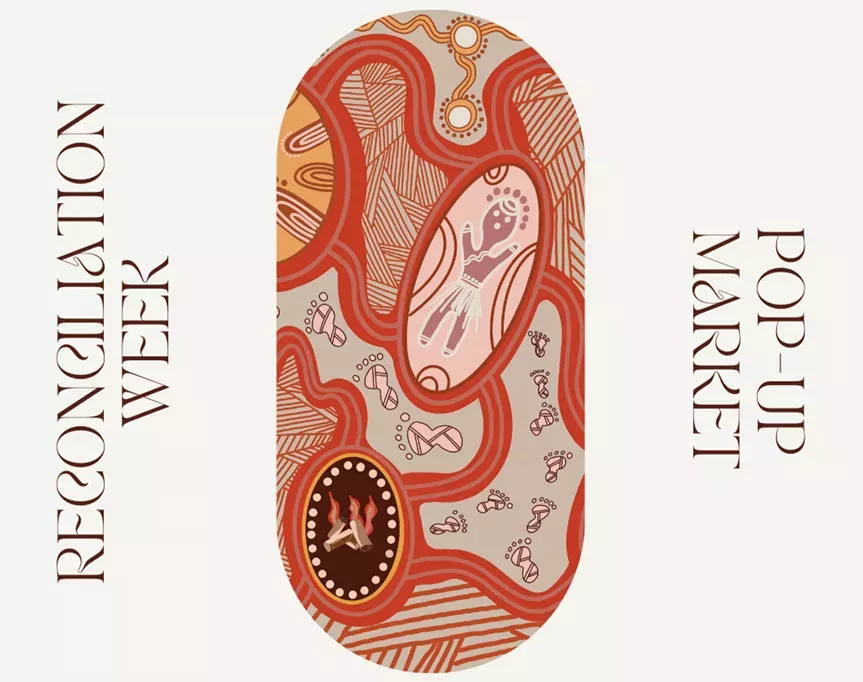how you can take action to make positive change this reconciliation week
Balanggarra and Yolngu artist Molly Hunt speaks to Reconciliation Australia CEO and Bunjalung woman, Karen Mundine.
 Every year from May 27th to June 3rd is National Reconciliation Week. The week is a good time to learn about our shared histories, cultures and achievements, and to celebrate and build on our relationships with each other – between First Nations folks and other Australians.
Every year from May 27th to June 3rd is National Reconciliation Week. The week is a good time to learn about our shared histories, cultures and achievements, and to celebrate and build on our relationships with each other – between First Nations folks and other Australians.
But change doesn’t happen in a week – it happens all year round, 24/7, in our day-to-day life. It’s more than just reflection and it’s more than just posting Instagram stories. It’s about everyone doing the hard work, and not just leaving all the heavy lifting to First Nations people.
This year’s National Reconciliation Week theme is a challenge: ‘Be Brave. Make Change.’ So what does it mean and how can you make a real difference?
A recent good example of ‘doing the work’ is our newly elected Prime Minister Anthony Albanese, who in his victory speech promised to act on the Uluru Statement from the Heart. He installed Aboriginal and Torres Strait Islander flags in the Parliament House media room and promised to address the voices of Indigenous agendas. This is work we want to see – taking action towards a brighter future.
Reconciliation Australia’s CEO Karen Mundine says that sometimes fear of doing the wrong thing can stop people from making change at an individual level. People need to “suck it up and be brave, take deep breaths and launch yourself into it”.
I spoke to Karen about how everyone can take on this year’s theme – this week, and all year around.
POINT OUT RACISM Karen reckons the best way to point out racism is to ask ourselves questions. “Questioning: why do we want to see something change? Why do you think or why don’t you accept that things should be the way they are? Investigating where or how might you have stepped up, or how can you intervene when there’s an off-colour joke or comment? And when can you start a conversation with friends about these topics?”
ACKNOWLEDGE COUNTRY Acknowledging Country is not just a set of words – it has meaning and connection. It’s always going to start with educating yourself about your location. “The first step is knowing which Country you live on or work on. The next step is getting that bravery to be able to acknowledge and say that in a public forum,” Karen says. Then it’s about diving deeper into the history of that place. “Knowing that history and talking about that history is so important,” she adds. Reflection plays a role, too. “How amazing and impressive is it that this mob still connect to Country and say ‘we are still here’ and ‘we are still connected’?”
KNOW OUR HISTORY Living in a time where information is always at our fingertips, I asked Karen how people can filter through it all and find the right facts. “Indigenous media, like NITV, Koori Mail or any number of Aboriginal and Torres Strait Islander radio stations are great places to get information from,” she says. There are also a lot of educational resources developed by First Nations people, as well as public art and the Reconciliation Australia website. There are so many easy ways to step in and learn more. “The challenge is when you know more, what are you are going to do with that? Are you going to bring it back into your Reconciliation Action Plan in the workplace or school?”
BE MINDFUL OF CULTURAL SAFETY, ESPECIALLY AT WORK Most First Nations people have had uncomfortable conversations and encounters when it comes to their workplaces. Well-meaning white people can come across as tone-deaf when it comes to certain events and dates. So, how can we be culturally safe? “It’s about respect,” Karen says. “And about treating people the way we want to be treated. Think about how we can embrace diversity and whether there is a Reconciliation Action Plan in your workplace, and if there is, how can we improve it?”
TAKE UP THE CHALLENGE Karen urges people to learn the history of this country, learn from its traditional owners, reflect on what needs to be done and make change to reach reconciliation. “If you’re truly an ally supportive of Reconciliation and want us to be a better country that values and holds up Aboriginal and Torres Strait Islander people, our culture, our history and who we are, then I challenge you, if you know these things, to do more to make change.”
This article was produced in partnership with Reconciliation Australia. This year, National Reconciliation Week takes place from May 27th to June 3rd. For more ideas on how you can “be brave and make change” and contribute to reconciliation in Australia, visit the National Reconciliation Week website.










.jpg&q=80&w=316&c=1&s=1)













.jpg&q=80&w=316&c=1&s=1)










